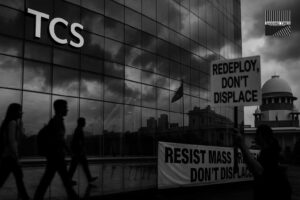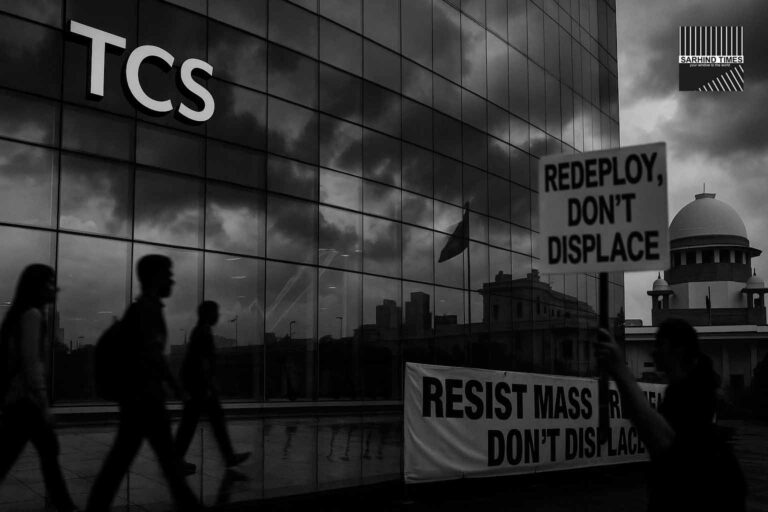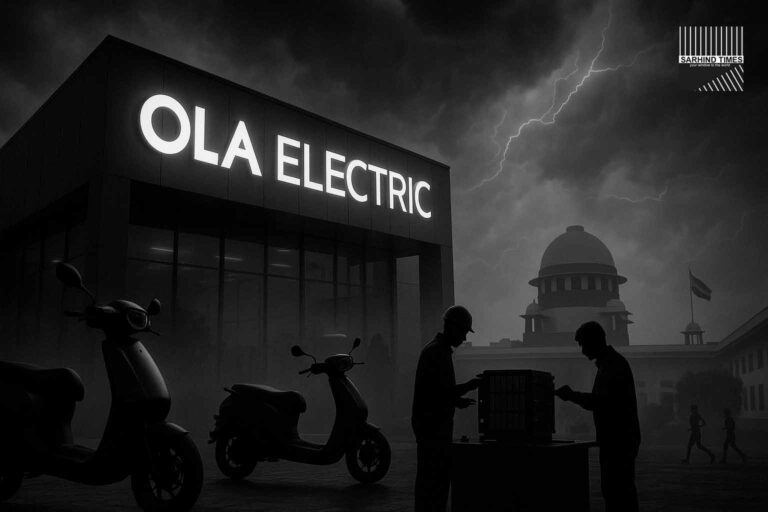The entrepreneurial energy driving India’s startup ecosystem has, for years, relied on access to the United States—both as a market and as a talent hub. Silicon Valley remains a critical destination for Indian founders looking to expand, raise capital, and tap into global expertise.
But a new policy proposal in Washington threatens to alter that equation dramatically. From September 21, the US is expected to introduce an annual $100,000 H-1B visa fee, sparking alarm across India’s startup community.
While large IT giants like TCS, Infosys, and Wipro may have the financial resilience to absorb the shock, smaller venture-backed firms—especially those dependent on niche engineers and early-stage expansion—face daunting challenges.
The H-1B Visa: A Lifeline Under Threat
For decades, the H-1B visa has been a pathway for skilled workers, particularly in technology and engineering, to enter the US. Indian professionals have been its largest beneficiaries, filling critical roles in software, AI, biotech, and fintech.
For startups, H-1B visas have been a lifeline:
- Bringing co-founders and engineers to US offices.
- Facilitating cross-border product development.
- Attracting investors who expect a US presence.
A $100,000 annual fee, however, turns that lifeline into a heavy financial burden.
Why $100,000 Is Devastating for Startups
- Capital Constraints – Early-stage startups operate on tight budgets, often funded by seed or Series A capital. An annual $100,000 fee per employee is simply unsustainable.
- Niche Talent Needs – Startups often seek highly specialized roles (AI researchers, semiconductor engineers) not easily found locally. Losing access slows innovation.
- Currency Risk – With the rupee-dollar exchange rate volatile, costs may rise even higher.
- Legal Overheads – More compliance layers could drain resources already stretched thin.
A Bengaluru-based SaaS founder put it bluntly:
“We can’t pay $100,000 per head just for visas. That’s more than some of our engineers’ salaries.”
Who Can Absorb the Shock?
- Large IT Firms: With billions in annual revenue, outsourcing majors may adjust, though reluctantly.
- Global Unicorns: Mature startups with deep VC backing may manage selective hires.
- Smaller Firms: The most vulnerable, forced to either delay US entry or pivot to remote models.
Possible Adaptations by Startups
- Remote/Hybrid Models – Keeping Indian engineers at home, using digital collaboration.
- Nearshoring – Establishing smaller hubs in Canada, Mexico, or Eastern Europe, which offer easier mobility.
- Strategic Hiring – Restricting US presence to leadership roles, outsourcing the rest.
- Policy Advocacy – Joining lobbying efforts through trade associations.
Call for Exemptions
A former US Presidential advisor has urged carve-outs for startups and innovation-driven firms. The logic:
- Excessive fees risk stifling innovation in sectors like AI, clean tech, and biotech.
- Startups create long-term value and jobs that outweigh the short-term fee revenue.
- Blanket policies may unintentionally favor incumbents over disruptors.
India’s Policy Dilemma
For New Delhi, the fee shock underscores two urgent priorities:
- Deepening Domestic Talent Pools – Expanding AI, chip design, and biotech education to reduce dependence on foreign pathways.
- Trade Pact Negotiations – Including mobility chapters in deals with the US, EU, and others to ensure smoother talent exchange.
Analysts say the move highlights the fragility of India’s startup globalization strategy—too dependent on foreign policy environments.
The Bigger Picture: US Politics
The proposal must be understood in the context of US politics:
- Domestic Workforce Concerns – Policymakers want to be seen protecting American jobs.
- Immigration as a Hot Topic – Election-year rhetoric often translates into restrictive policies.
- Revenue Raising – Visa fees are an easy way to fund other programs.
For Indian founders, the reality is that H-1B visas are becoming politically volatile assets, not reliable tools.
Global Mobility Alternatives
As H-1B tightens, other countries are wooing talent:
- Canada’s Tech Visa: Offers smoother pathways for engineers.
- UK’s High Potential Individual Visa: Attracts global graduates.
- Singapore’s ONE Pass: Tailored for top talent and founders.
If US barriers rise too high, Indian startups may look elsewhere.
Expert Voices
- Policy Analyst: “This could trigger a wave of nearshoring to Canada and Europe.”
- Startup Founder: “We’ll delay our US office plans until clarity emerges.”
- VC Investor: “Investors may reroute capital to firms that can scale without US dependence.”
Conclusion
The proposed $100,000 H-1B annual fee represents a serious shock for Indian startups. While large IT services players may adapt, the innovation-driven heart of India’s tech ecosystem could suffer.
Startups are likely to explore remote models, alternative hubs, and policy advocacy. But the episode underscores a larger truth: India must build deeper self-reliance in talent and capital, while also negotiating stronger mobility rights in global trade deals.
For now, one thing is clear: the road to Silicon Valley has never been costlier—or more uncertain.
#Startups #H1B #USPolicy #Talent #TechEcosystem #GlobalMobility #SarhindTimes #Innovation





















+ There are no comments
Add yours